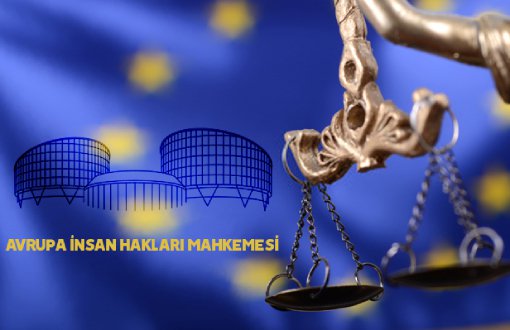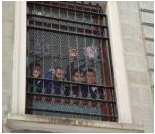* Photo: Anadolu Agency
Click to read the article in Turkish
The European Court of Human Rights (ECtHR) has announced its ruling on citizen of Russia G.B. and her three children, who were held in Kumkapı and Antep Removal Centers in Turkey. The ECtHR has concluded that the prohibition of inhuman or degrading treatment was violated.
The mother appealed to ECtHR in 2015
Held in Kumkapı Removal Center and Antep Removal Center to be deported from Turkey, G.B. appealed to the ECtHR on January 22, 2015 and complained about the overcrowding at the centers and problems of hygiene. She also argued that they were subjected to ill-treatment.
Reviewing the application of G.B., the ECtHR has ruled that mother G.B. shall be paid 2,250 Euro and her three children shall be paid 20,000 Euro each in non-pecuniary damages. Turkey will also pay the mother and her children 5,500 Euro for the court expenses.
Referring to the conditions of two separate removal centers where G.B. and the children were held, the ECtHR has concluded that the prohibition of inhuman or degrading treatment has been violated as per the Article 3 of the European Convention on Human Rights (ECHR).
'Government failed to refute the allegations'
In its detailed judgement, the ECtHR has indicated that the government of Turkey has failed to refute the applicant's allegations that "they were rarely allowed to go outside for fresh air, that they were constantly exposed to cigarette smoke from other detainees and that their special nutritional and other needs, particularly in the case of the minor applicants, were not met."
"The minor applicants were made to sleep on iron-frame bunk‑beds with sharp edges, which could be dangerous for children their age and they were not provided with any indoor or outdoor play areas", it has added.
'Conditions were against international principles'
Referring to a series of findings including "the length of the detention at issue and the feelings of anxiety that its indefinite term may have caused", the Court has concluded that "the conditions of the applicants' detention caused them distress which exceeded the unavoidable level of suffering inherent in detention and attained the threshold of severity required to bring their treatment within the scope of Article 3."
The Court has also emphasized that "the manifestly adverse conditions of detention at the Kumkapı Removal Centre, which have led to findings of violation even in respect of adult applicants, were particularly unsuitable for the applicant children in view of their extreme vulnerability."
The conditions of detention at issue were also "completely at odds with the widely recognised international principles on the protection of children", the ECtHR has emphasized further. (RT/SD)





